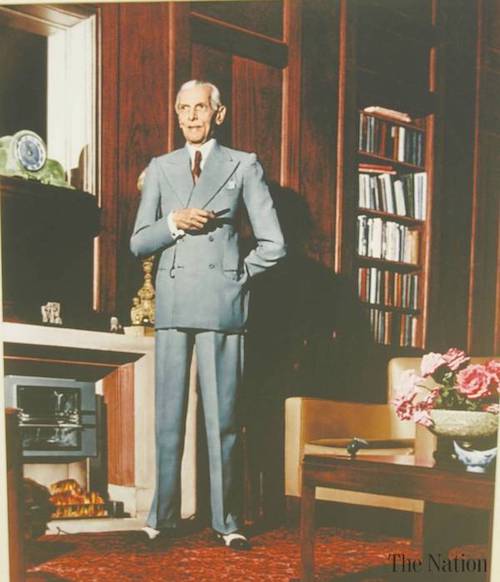Dear Readers,
After the early demise of Quaid-e-Azam Muhammad Ali Jinnah in September 1948, followed three years later by the assassination of Pakistan’s first Prime Minister Liaquat Ali Khan, the performances of leaders that followed, almost across the board with honourable exceptions, left much to be desired. The Quaid’s dream of Pakistan becoming a truly democratic country in the real sense remains unfulfilled, even after more than seven decades of wresting independence from the British Empire, we are still in search of a truthful, honest and upright leader having popular base in all four Provinces, be able to hold steady and be absolutely clear on values and principles, having the courage to stick to these, striving to do what is right rather than what is expedient. Leaders have to be honest and sincere to the national cause, they must be strong and dedicated and must lead from the front. Many of Pakistan’s erstwhile leaders failed on these counts. In a world that keeps changing rapidly we need leaders who can protect and serve the interests of the people they represent and have the courage to take difficult decisions. This means not just criticizing the failings of weak leaders, but also highlighting the successes of strong ones. Such people do exist who are able to take strong and unpopular decisions without fear of repercussions, who have the courage of conviction to admit own mistakes and denounce false actions by others. The confidence to act in accordance with one’s beliefs especially in the face of resistance, criticism, or prosecution is what matters. For the benefit of readers my article titled “Courage of Conviction” is reproduced below:
“While most of us fast we seldom adhere to the revelation of the Quran which marks Ramadan as a month for reflection. God is admonishing the believers to reflect on the meaning of the Quranic stipulations by using one’s logic and reason while fasting. Every Muslim is responsible for his or her conduct personally when the Day comes, that is why we all should try to understand and even more importantly act according to the tenets of Islam as ordained by God.
One such principle that demands our reflection is to stay steadfast in adversity or, using more modern terms the “courage of conviction”. This ethical principle implies that a person has to have a conviction, an ethical framework or a worldview in the first place. And secondly he (or she) has to stand up courageously for it.
With regard to the first part everybody of us has to find out for himself based on the ethical principles of religion what is right and what is wrong in a given situation and time, who am I and what is my place and responsibility in society. Abiding by rules and the law is a central consideration for a citizen and for a Muslim and that is why we ask God five times a day to show us the right path and let us not deviate from it. As Muslims we accept the laws Islam has put down but even that should not be done by “rote” but by using the reason that God has equipped us with. In short, “belief” is far more important than performing “rituals”.
Imam Ghazali spent fifteen years doubting and rationalizing about how he could comply with the demands of Islam. Undergoing a spiritual crisis at the age of about forty, he abandoned his career and left Baghdad on the pretext of going on pilgrimage to Mecca. Making arrangements for his family, he disposed of his wealth and adopted an ascetic lifestyle. The purpose of abstaining from scholastic work was to confront the spiritual experience and more ordinary understanding of “the Word and the Traditions.” After some time in Damascus and Jerusalem, with a visit to Medina and Mecca in 1096, he returned to Tus to spend the next several years in ‘uzla (seclusion). Fakhr al-Mulk, grand vizier to Ahmad Sanjar, pressed al-Ghazali to return to the Nizamiyya in Nishapur. Al-Ghazali reluctantly capitulated finally, fearing rightly that he and his newly acquired teachings would meet with resistance and controversy among the religious establishment. But because of his “courage of conviction” he went back and started teaching his new interpretation despite all critique that he may have faced. This clearly shows that gaining a new understanding and conviction is a long-term process and that is not easy. A process that demands perseverance and discipline. And standing by one’s conviction in the open needs courage and spine. A lot of people who do have courage of conviction as they rise in rank and/or stature tend to compromise as they reach the higher circles lest they lose their perks and privileges acquired in their journey upwards. These people are pathetic, they compromise on their character.

Citizens of a modern state have to abide by the laws of the land. As employees we have to abide by the rules of employment, as soldiers we have to abide by the command of the superior officers in the chain of command. That would be easy if it was unreflected, slavish obedience, the type of obedience that a feudal lord demands from a servant. Doing what one has been told to do unreflected is as if leaving the responsibility for what one has done to the one who gave the order. But as Muslims based on Quran we have been commended to reflect and be responsible for ourselves. And we know that we are held responsible for all our deeds when the day comes. Excuses like ‘my boss told me so’ or ‘I had no choice’ will not hold then. One has always a choice. This was the crime at the Nuremberg trials after World War 2, because the accused German hierarchy, both civil military, were charged with slavishly obeying criminal orders from Hitler that they could have challenged, albeit with their lives if they disobeyed.
Following of orders always demands our reflection not only on Quran but on the right or wrong of the order given. It can be already seen what are the implications of such conduct. If I can agree with a demand or order that I find right there is no problem. But if I think the order is wrong and I can’t obey it? In the military where there is a much stricter discipline there can occur situations of having to disobey an unlawful command. Disobeying it can have dire consequences starting from disciplinary reprimands to missing promotion or even losing the job. So one has to be very sure about one’s objection and it has to be a real fundamental one. We are not talking about bickering on minor issues here. But when a major mistake or false decision is challenged much harm could be avoided if the objection was considered seriously. However every government, company or institution yes-men will always agree with whatever the superior opines even if they think it is wrong, but keep quiet in order to promote their career, such people are useless for the institution and in a way, it amounts to corruption and dishonesty. However speaking out loud and disclosing one’s doubts needs courage and the readiness to face adverse reaction from the superior or colleagues.
On the other hand, there can be no doubt that this ‘courage of conviction’ is needed to avoid mistakes, spare us from wrong policies and misadventures that cost money and damage the progress of the state and/or institutions. It also needs superiors with qualities of both character and intellect who are ready to listen to doubts and critique without taking it personal and without punishing the person for it. We all are human beings and we are prone to make mistakes sometimes. What one needs in such a situation is a superior who is in his or her seat because of qualification, character and merit and not because of “sifarish”. This is probably not possible in a feudal society like ours which demands slavish obedience. Sifarish makes you vulnerable and you feel attacked in your position by people who question the wisdom of your decision. Unfortunately, in our country merit tends to be a disqualifier and instead obedience to the superior or the one who put you in the place is the preferred qualification. Clearly that is where the problems is in Pakistan. Imran Khan does not lack courage of conviction but we must see more of that quality when dealing with the insiders within his close circle of advisors.
No wonder that corruption and mismanagement are ruling the roost. In order to change this situation we need not only to train and nurture courageous individuals but an educational system that supports such ethical behaviour, the forming of convictions in young people that allows them questioning and doubting of a given reality based on this conviction and the development of the courage to stand up for one’s conviction in the firm knowledge that it is to God alone that we submit ourselves unconditionally and to no one else.
“The opinions/views expressed in Defence Journal are entirely those of the writers and cannot be construed to reflect the official views of Defence Journal”.




